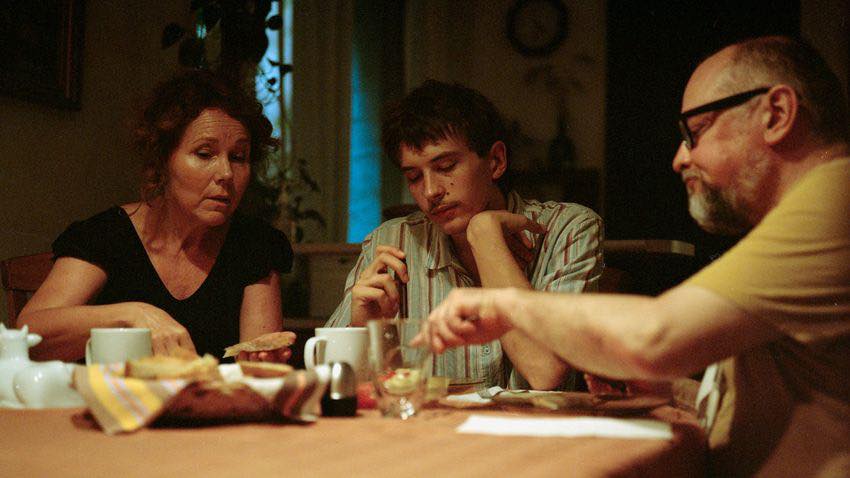Two prizes were awarded to Hungarian directors, one at the Venice International Film Festival and the other at the Moondance International Film Festival.Continue reading
A student who fails his final exams unintentionally triggers a national political scandal – this is the basic concept behind Gábor Reisz’s Venice Prize-winning film. Explanation for Everything (Magyarázat mindenre) is made in the naturalistic style of the Romanian New Wave, but its caustic humor does not spare either political tendency, as it approaches both with deep empathy, writes Magyar Nemzet.
In recent times, there have been few directorial debuts in Hungary when the works give the twenty-something generation the feeling that the film is about them, their problems, and their everyday struggles. Gábor Reisz, however, is at the forefront of this. His debut movie, For Some Inexplicable Reason (VAN valami furcsa és megmagyarázhatatlan) became a huge success, and has won several awards, for example, a Special Prize, Audience Award, and Critics’ Prize at the Torino Film Festival. The similarly themed but somewhat more complex Bad Poems (Roszz Versek) also gained recognition within professional circles and audiences.

An extract from the film, Explanation for Everything. Photo via Facebook/cirko-gejzír mozi
The movie Explanation for Everything, debuted at the Venice Film Festival and won the best film award in the Horizons section. It was instantly embraced by the opposition press, saying that
it was finally a domestic production that was not afraid to present itself to the government, however, the situation is more complicated than that.
At the heart of the story is a high school boy who fails his final exam in history and is flunked. He barely dares to tell his strict father about the incident, finally claiming that he got a failing grade because he wore a cockade, but in doing so he sets off a huge avalanche. The conservative old man has a grudge against the liberal teacher in question because of a previous conflict, so he kicks up a fuss that attracts media attention. A right-wing journalist from Transylvania (formerly part of Hungary, now Romania) writes an article about the incident. Meanwhile, the boy, who does not care about politics – like the central characters in the director’s previous works – is just drifting blindly with the tide, hopelessly in love with his oppositional classmate.
It is Reisz’s pet peeve that while it is a matter of minutes when politics is discussed in a conversation with family, friends, or even at work, it is not portrayed at all in Hungarian films. Well, the names are flying around here. Viktor Orbán, Ferenc Gyurcsány, Péter Szijjártó, and Péter Márki-Zay are mentioned, but at the same time all sides are treated with the same empathy, no typical stereotypes are used. This shows that a generation has grown up, now middle-aged, raised by parents who were traumatized by the Holocaust and communism, and that each family’s own trauma is the most important thing, making dialogue impossible. All of this is portrayed in Romanian New Wave style, in long scenes, with frequent use of a handheld camera, and with infinite naturalness.
Reisz, however, has not lost his sense of humor, and the tense pettiness that emanates from the basic situation sometimes turns into parody.
Even though contrary to its title, it does not explain the situation, but rather sensitizes both sides, as that was also its aim. What everyone can take away from the film, as the director stressed in Venice, is that the most important thing is to start talking while you still have someone to talk to.
Via Magyar Nemzet, Featured image via Facebook/Cirko Film